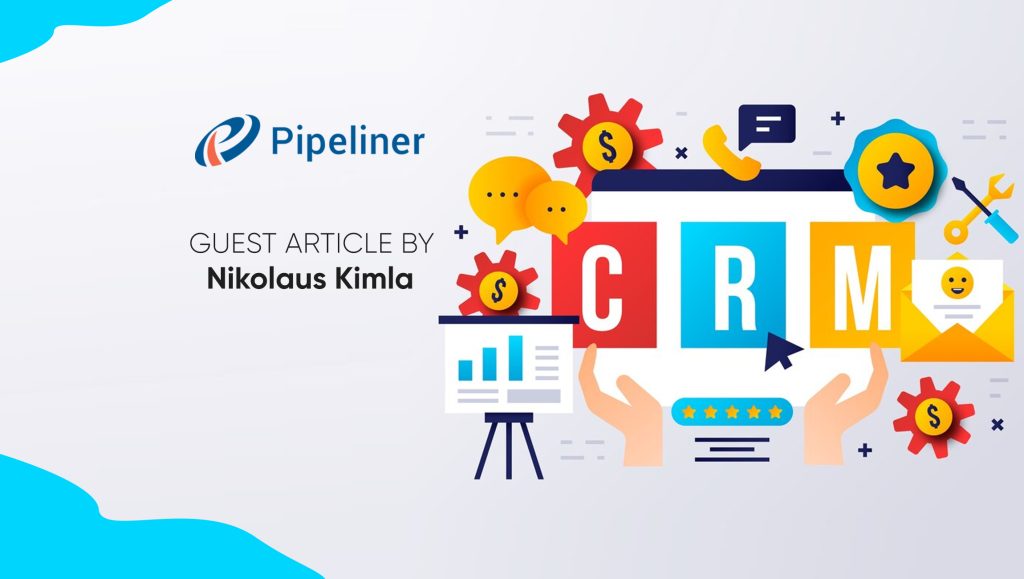It’s indisputable that customer relationship management (CRM) systems are an essential tool for modern sales professionals. Because of their importance, the marketplace is crowded, and only getting bigger. The current CRM market is estimated at USD$89.30 billion and is expected to grow to USD$146.10 billion in the next 5 years.
That said, while there are countless options available for businesses to consider, many can quickly become out of favor. It’s imperative for solutions to differentiate themselves to stand out. But how, exactly?
Standing Out From the Pack
To date, the most successful CRM platforms demonstrate an exceptional ability to assess situations quickly and react intelligently. They’re capable of staying agile. Those who’ve built these platforms have considered the rapid pace at which technology evolves, capitalizing on opportunities like AI. The ability to remain agile is a hallmark of leading CRM platforms, allowing them to stay at the cutting edge, incorporating the latest advancements and improvements that sales professionals need to be at peak performance.
These agile solutions are built from the ground up with the future in mind. Monolithic, legacy platforms like Salesforce and Microsoft Dynamics aren’t built with the agile, open-source structure necessary to stay current with the fast pace in which technology is evolving today. Open-source platforms allow for greater flexibility and faster innovation, as the broader developer community can contribute to and enhance the platform. This ensures these CRMs remain at the cutting edge, incorporating the latest advancements and improvements.
An agile CRM also allows for the seamless integration of new features. As technology evolves, so do the needs and expectations of sales professionals. A CRM that can effortlessly incorporate new tools, such as AI-driven analytics or enhanced communication features, ensures that users always have access to the best resources available. This continuous enhancement keeps the CRM platform relevant and valuable, preventing it from becoming obsolete in a market where technological advancements happen at breakneck speed.
Read More: SalesTechStar Interview with Matt Curl, COO at Apollo.io
How to Identify an Agile CRM Platform
As we’ve established, a one-size-fits-all approach to sales CRM doesn’t cut it because no two organizations operate identically, resulting in different needs and preferences for their CRM platform. With that said, any agile CRM should be able to check off the following boxes:
1. Customizable:
An agile CRM must be flexible, effortlessly adapting to different sales teams’ unique workflows, processes and objectives through features like customizable dashboards and tailored reporting.
2. Ease of Integration:
It should seamlessly integrate with a business’ other essential tools and software, such as email clients, marketing automation platforms, human resource information systems and eCommerce systems, to ensure a unified tech stack.
3. Mobile Accessibility:
The modern sales professional operates in a hybrid workplace and needs access to their CRM no matter their work environment. A quality mobile app ensures they can access critical information, update records and manage tasks from anywhere, anytime.
4. AI and Automation:
Advanced features like AI can enhance productivity by automating routine tasks, such as providing intelligent insights and forecasting and assisting in composing client communications, to enable sales teams to focus on the tasks humans perform best.
Benefits of an Agile CRM
An agile CRM can quickly adapt to changing business needs and market conditions, which is crucial in today’s fast-paced marketplace. This allows businesses to implement new features and adjust workflows swiftly to stay ahead of trends and maintain a competitive edge.
These platforms better provide real-time data and analytics, offering deep insights into customer behavior, preferences, purchasing patterns and potential opportunities for upsell. This information enables sales teams to tailor their approach and improve customer engagement, increasing customer satisfaction and loyalty.
Additionally, agile CRMs facilitate better collaboration among team members with features like shared calendars, task assignments, and centralized customer information. Plus, an agile platform can accommodate many different work styles within one business environment, allowing individual sales professionals to tailor their UI to their personal preferences while maintaining access to the same data as their colleagues. This ensures everyone is on the same page and can work together more effectively, streamlining communication and project management.
Efficiency and scalability are also critical advantages of agile CRMs. As businesses grow, an agile CRM can scale to accommodate increased data volumes, more users and additional functionalities, ensuring the system remains effective and efficient as the organization expands and the demands of their CRM change. Moreover, agile CRMs enable businesses to integrate seamlessly with new technologies like artificial intelligence and machine learning, keeping them at the forefront of technological advancements.
Standing out in the crowded CRM market requires a solution constructed for agility. By leveraging open-source technology, these platforms can integrate new features seamlessly, offer extensive customization capabilities and quickly adapt to support new technologies. With this approach, these agile CRM platforms can meet the diverse needs of modern businesses. As the CRM market continues to evolve, the platforms that prioritize these qualities will be the ones that thrive and lead the way.
Read More: The New Era of the B2B Sales Engineer: Five Things to Know




















